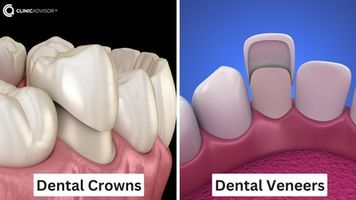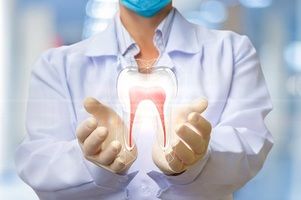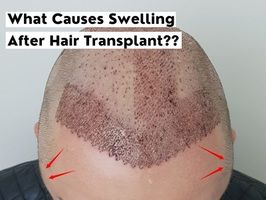
Dental crowns are one of the most common restorative dental procedures performed by dentists. They are used to cover or cap damaged, decayed, or weakened teeth to restore their strength, function, and appearance. In this article, we'll provide an overview of dental crowns, including their purpose, types, and benefits.
What are Dental Crowns?
Dental crowns are custom-made caps that are placed over damaged or decayed teeth to protect them from further damage and restore their function and appearance. They are typically made from materials such as porcelain, metal, or a combination of both.
The crown is designed to match the shape, size, and color of the natural tooth and is cemented in place to provide a secure fit. There are several types of dental crowns, you can find in Table 2 below, details about each material.
When are Dental Crowns Necessary?
Dental crowns are necessary in situations where a tooth has been severely damaged or decayed beyond the point where a filling can be used to restore it. They can also be used to strengthen teeth that have been weakened due to root canal treatment or to support a dental bridge or denture.
Benefits of Dental Crowns
Dental crowns offer several benefits, including:
- Protection: Dental crowns provide a protective layer over damaged or decayed teeth, preventing further damage and decay.
- Strength: Dental crowns strengthen weakened teeth, allowing them to function properly and withstand chewing and biting forces.
- Aesthetics: Dental crowns can improve the appearance of damaged or discolored teeth, restoring a natural-looking smile.
- Durability: Dental crowns are long-lasting, providing many years of use with proper care and maintenance.
Who Should Get Dental Crowns?
Dental crowns may not be suitable for everyone. There are certain conditions that can be treated with dental crowns such as:
- Patients with damaged or decayed teeth: Dental crowns are typically recommended for patients with teeth that are severely damaged or decayed beyond the point where a filling can be used to restore them.
- Patients who have had root canal treatment: Teeth that have had root canal treatment are often weakened and may require a dental crown to provide additional support and strength.
- Patients with cracked or broken teeth: Dental crowns can be used to protect cracked or broken teeth from further damage and restore their function and appearance.
- Patients with large fillings: Teeth with large fillings may be weakened and at risk for further damage, and a dental crown can help protect and strengthen them.
Who Shouldn't Get Dental Crowns?
Dental crowns are an effective restorative dental procedure that can be used to protect, strengthen, and improve the appearance of damaged or decayed teeth.
However, they are not the best option for everyone. Here are some guidelines on who shouldn't get dental crowns:
- Patients with healthy teeth: Dental crowns are not necessary for patients with healthy teeth, and placing a crown on a healthy tooth can actually weaken it.
- Patients with insufficient tooth structure: In order to place a dental crown, there must be enough tooth structure remaining to support it. If there is not enough tooth structure, other restorative dental procedures may be necessary.
- Patients with gum disease: If a patient has gum disease, the underlying bone and gum tissue may not be strong enough to support a dental crown.
- Patients with unrealistic expectations: While dental crowns can improve the appearance of damaged or discolored teeth, they cannot provide a perfect or flawless smile. Patients with unrealistic expectations may not be satisfied with the results of a dental crown.
Conclusion
Dental crowns are a versatile and effective restorative dental procedure that can improve the strength, function, and appearance of damaged or decayed teeth.
With several types of crowns available, your dentist can help you choose the best option for your specific dental needs. With proper care and maintenance, dental crowns can provide many years of use and a beautiful, healthy smile.
Table 1: Dental Crown Types - Advantages, Disadvantages, and Lifespan
| Types | Pros | Cons | Lifespan |
| Metal Crowns | Very strong and durable, can withstand a lot of biting and chewing force, and is long-lasting. | Lack of aesthetics may cause a dark line at the gum line and may require more of the tooth to be removed. | 10-20 years. |
| Porcelain-Fused-to-Metal (PFM) Crown | Can provide both strength and aesthetics and can be color-matched to surrounding teeth. | Not as strong as metal crowns, may cause a dark line at the gum line. | 10-15 years. |
| All-Ceramic Crowns | Highly aesthetic, can be color-matched to surrounding teeth, biocompatible. | Not as strong as metal crowns, may wear down opposing teeth over time. | 8-15 years |
| Zirconia Crowns | Strong and durable, biocompatible, and highly aesthetic. | More expensive than other types of crowns. | 15+ years |
| E-max Crowns | Highly aesthetic, can be color-matched to surrounding teeth, biocompatible, very strong, and durable. | More expensive than other types of crowns. | 10+ years |
Note: The lifespan of a dental crown can also vary depending on factors such as oral hygiene, biting force, and the material used.
Table 2: Dental Crown Types and Average Cost in Europe, U.S., and Turkiye
| Types of Dental Crown | Average Cost in Europe (EUR) | Average Cost in the US (USD) | Average Cost in Turkey (TRY) |
| Metal Crowns | €300-€600 | $800-$1,500 | 2.000 TL - 4.000 TL |
| Porcelain-Fused-to-Metal (PFM) Crown | €400-€900 | $1,000-$2,000 | 2.500 TL - 6.000 TL |
| All-Ceramic Crowns | €500-€1,200 | $1,200-$2,500 | 3.000 TL - 7.000 TL |
| Zirconia Crowns | €800-€1,500 | $1,500-$3,000 | 5.000 TL - 8.000 TL |
| E-max Crowns | €700-€1,500 | $1,500-$3,000 | 4.000 TL - 8.000 TL |
Note: Remember that the costs listed are average estimates and may vary depending on the specific dentist or location.








Share Your Opinion, Please